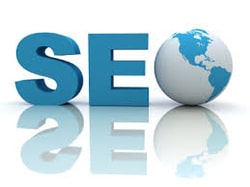What is Paid for Advertising in Search Engines?
PPC stands for Pay-Per-Click, which is a digital advertising model where advertisers pay a fee each time their ad is clicked. It's a way of buying visits to your site rather than attempting to "earn" those visits organically through techniques like SEO.
Here's how PPC works:
Here's how PPC works:
- Ad Placement: Advertisers bid on keywords or phrases relevant to their target audience. These keywords are what people are searching for on search engines like Google or Bing when they're looking for a product or service.
- Ad Creation: Advertisers create ads that are displayed on search engine results pages (SERPs) or other online platforms like social media networks or websites. These ads typically include a headline, a description, and a link to the advertiser's website.
- Ad Auction: When a user performs a search using keywords that advertisers are targeting, an ad auction takes place. This auction determines which ads will be displayed and in what order based on factors like the bid amount, ad quality, and relevance.
- Ad Ranking: Search engines use a combination of bid amount and ad quality (determined by factors like click-through rate, ad relevance, and landing page experience) to determine the ad's position on the search results page. The ad with the highest Ad Rank (bid amount multiplied by quality score) typically gets the top position.
- Ad Display and Clicks: The ads are displayed to users who have entered relevant search queries. If a user clicks on the ad, the advertiser pays the search engine or advertising platform the amount they bid for that click.
- Budget Management: Advertisers set a daily or monthly budget for their PPC campaigns to control their advertising costs. Once the budget is exhausted, the ads typically stop appearing until the budget is replenished or the campaign is adjusted.
- Performance Tracking and Optimization: Advertisers monitor the performance of their PPC campaigns using metrics like click-through rate (CTR), conversion rate, and return on investment (ROI). Based on this data, they can make adjustments to their campaigns to improve performance, such as refining keyword targeting, optimizing ad copy, or adjusting bid amounts.
GOOGLE ADWORDS Will it help my Website RANK HIGHER IN GOOGLE? PPC
If I have developed a brand new website I will sometimes do some "Paid for Advertising" or also known as "PPC", "Pay Per Click Advertising" just to initially help the website on it's way and to attract visitors whilst I'm initially optimising the website. It just helps to get visitors through to my site at the beginning and it also seems to help Google take notice of the new website and associated pages.
You can do "paid for advertising" with all the Search engine companies but for this feature I will focus on Google Ads (Awords), as Google is the most commonly used search engine out there. But there are now a whole heap of within PPC Advertising that can be done through social media platforms such as:
This advertising can be done through Google Ads (previously Adwords) and are done on a pay per click basis. Basically the more your willing to pay the higher and the more often your advert will appear and Google Adwords will give you some help here telling you want the average price is, some business sectors are naturally higher than others and depend on the amount of revenue that each potential lead could bring in! I have heard of some PPCs costing more than £50.00. But this is unusual most seem to be between 20 pence and 70 pence. Those paying more will appear in the pink shaded portion for the keywords they select. Now you can do this directly yourself, but you need to know how and what your keywords are. As there is no point placing an add in this section if people click on the advert and it's not exactly what they want or you are just attracting browser, window shoppers. Remember you pay for each time somebody clicks on the advertisement link and does not guarantee any business but you can set a budget for each week or month. There are also companies who will do this for you, at a cost! You can also, through Google Adwords / Adsense, place your advert for your business in other companies websites, again this is on a paid per click basis and the person who allows the advert on their site ( using Adsense ) will also get a revenue from advertising your site on their website. But generally we are only talking about pennies here and is only really useful in terms of making money if you have a website bringing in thousands of hits a day. But it the long run this could help to offset the cost of your own PPC advertising. ADVERTISING UPDATE Just been helping a company out with their PPC Campaign and unfortunately they did exactly what I described above! They had basically made there keywords in their PPC campaign so broad, open, non specific and in most instances utilising sometimes only 1 or 2 keywords. They were attracting lots of clicks but in doing so a very high bounce rate and ultimately a low conversion rate. They had set their daily limit to £5.00 per day and were only receiving a few leads a week. They were quickly using up their daily budget within a few hours. So in short, they had a high click through rate but really low PPC net conversion rate. This was one of the things I changed straight away - I ensured their PPC adverts & campaign was specific to their actual services and was only attracting clicks that were far more meaningful, business specific and had a higher possibility of a sale. And all though I added some very specific keywords and exclusion words they quadrupled their conversion rate and despite recieving less click throughs. And this also meant there adverts were running the whole day and they rarely used up their entire daily budget. It is worth noting here that the cost of featuring for some keywords (based on popularity) are far more expensive than more specific and meaningful search terms that would attract the right king of visitor. Contact US if you wish me to take over and look after your PPC Campaigns, Web Adverts, Adwords or Adsense and how to make the best of advertising online. The Future is Search
Gone are the Yellow Pages or Thomson Local.
People just type into a browser what they want. And hey presto Google shows you want Google thinks you want! They are not always right, but people tend to trust them or seasoned surfers know how to make their keyword searches more specific to find exactly what they are looking for............! The Best PPC PLATFORMS
|
PPC PAY PER CLICK CAMPAIGNS - HINTS AND TIPSHelpful Advice - Basics with PPC Campaigns
"Pay Per Click" How to get the best out of it. Don't let Google persuade you to use what they say are the most popular keyword in your business area. They may well be half right but they do not know your business and products like you do. It may well just increase your click through rate (gain more visitors) and thus waste your daily budget on random clickers. Stay away from PPC Campaigns using only 1 or 2 Keywords. You'll get a high click rate from people just browsing. Be quite specific in your PPC Advertising Campaigns to gain a higher conversion rate and save you money. Do not see PPC a way of attracting customers to your website, see it as a way to attract customers to your products and services that you offer. If people searching really want to buy something, whether it is a product or service they will generally type in the exact product and location where they want to buy it otherwise the likelihood is they are browsing. People using the web to buy products and services have over the last decade become increasingly savvy. Focus on your products and exact services you provide and tell them exactly what they get and for exactly how much. Don't be wishy washy in your PPC campaigns, online adverts and advertising campaigns. As this can cost you lots more money. You can inadvertently bring in the wrong customers. And pay for the privilege! |










